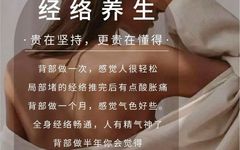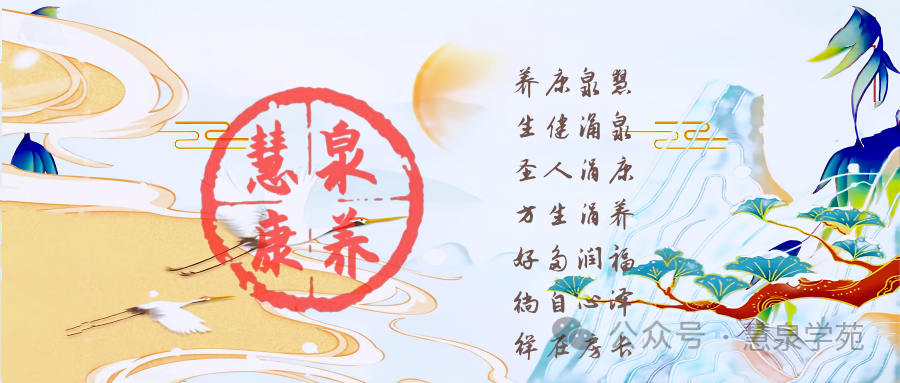
Unblocking and Nourishing
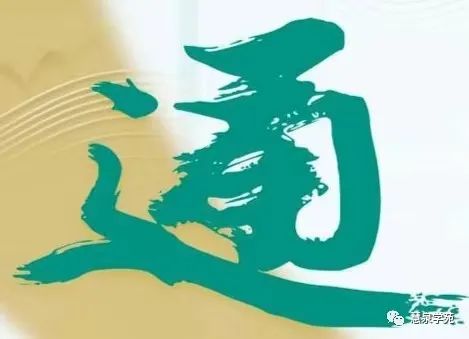
Traditional Chinese Medicine (TCM) has many theories regarding the onset of disease, including the struggle between Zheng Qi (正气) and Xie Qi (邪气), imbalance of Yin and Yang, organ disease theories, and the excess of Six Evils and Seven Emotions. Ultimately, it all comes down to the concept of unblocking. When there is an imbalance of Yin and Yang, it manifests as the obstruction of Qi and blood. “No flow means pain; flow means no pain.”
Some may say, “Doctor, I don’t have pain, just numbness.” In fact, pain is a broad term that includes many abnormal sensations such as itching, numbness, and discomfort. These are all related to pain. Itching can develop into pain, numbness can turn into pain, and pain can also transform into numbness. TCM emphasizes that “unblocking” is a form of nourishment.
Unblocking the “Five Senses and Nine Orifices”

The Five Senses refer to the ears, eyes, mouth, nose, and tongue; each ear, eye, and nose has two orifices, while the mouth and tongue count as one orifice, along with the front and back yin, totaling nine orifices.
The relationship between the internal organs and the Five Senses and Nine Orifices is complex. In terms of their primary connections, the Neijing states that the five organs “open to the orifices”: the heart opens to the tongue, the liver opens to the eyes, the spleen opens to the mouth, the lungs open to the nose, and the kidneys open to the two yin. It is also said that the kidneys “open to the ears.” This means there is a corresponding relationship between a specific organ and a specific orifice. However, in reality, each orifice is related to multiple organs directly or indirectly.
TCM emphasizes a holistic view; each orifice is associated with its internal organs. For example, if the eyes frequently tear or become red, we consider liver issues, as the liver opens to the eyes. If there is frequent nasal discharge, we generally consider lung issues, as the lungs open to the nose.
Unblocking the “Large Intestine”
Regular bowel movements are crucial for human health; if obstructed, various problems can arise.
Difficult bowel movements, or not having a bowel movement for several days, is termed constipation. Heat excess harming fluids leads to heat constipation, while cold accumulation leads to cold constipation, Qi stagnation results in Qi constipation, and Qi deficiency results in deficiency constipation.
Unformed or watery stools with increased frequency indicate diarrhea;
Loose stools that are unformed indicate damp diarrhea, often due to spleen dysfunction;
Abdominal pain with diarrhea at dawn is termed “five dawn diarrhea,” often due to kidney Yang deficiency;
Abdominal pain with diarrhea that decreases after defecation is termed food stagnation diarrhea.
In daily life, we should pay attention to consuming more vegetables, fruits, and whole grains rich in dietary fiber, drink adequate water, exercise regularly, and maintain daily bowel movements. Additionally, if constipation becomes severe, timely measures should be taken, such as taking laxatives.
Unblocking the “Urination”
Normal urine is light yellow; when drinking a lot of water, it may become nearly colorless, while internal heat can darken its color.
Generally, increased urine volume indicates deficiency cold;
Decreased urine volume is due to heat excess, excessive sweating harming fluids, or vomiting and diarrhea damaging fluids.
Increased frequency of urination with urgency and short, red urine is often due to damp heat;
Prolonged illness with clear, frequent urination at night indicates kidney Yang deficiency;
Painful urination, urgency, and burning sensation are often due to damp heat descending into the bladder, commonly seen in gonorrhea;
Incontinence during sleep indicates kidney Qi instability; confusion with incontinence indicates a critical condition.
Regular attention to hydration is important, ensuring at least 2000 ml of water daily, especially for the elderly, who should develop a habit of drinking water regularly, even if not thirsty. Drinking plain water, light tea, and minimizing soda, coffee, and strong tea is advisable. Drinking more water helps eliminate metabolic toxins and promotes metabolism.
Unblocking the “Menstruation”
The Huangdi Neijing Suwen states: “For women… at fourteen, the Tian Gui arrives, the Ren Mai is open, and the Tai Chong pulse is strong, menstruation occurs regularly, thus they can conceive… At forty-nine, the Ren Mai is deficient, the Tai Chong pulse weak, the Tian Gui is exhausted, the pathway is blocked, thus the body deteriorates and they cannot conceive.” This means that a woman’s reproductive function begins at fourteen when the Ren Mai is open and ends at forty-nine when it is blocked, entering menopause. Therefore, for a healthy woman, menstruation must be smooth during this reproductive period.
Some women may have menstruation every month, but the flow is very light, dark in color, or accompanied by headaches and abdominal pain, indicating “no flow means pain.” If menstruation is obstructed, including abnormal flow and cycle, it can lead to many diseases. Many young women do not care about menstrual irregularities, which can become difficult to correct over time.
Young women should pay attention to self-care, avoid staying up late, excessive night shifts, refrain from taking weight loss pills or contraceptives indiscriminately, reduce consumption of cold drinks, increase nutrition, quit smoking and drinking, and maintain moderate exercise.
Unblocking the “Blood Vessels”
“Vessels” are the channels through which blood flows, and blood is the red liquid flowing within these vessels, while the heart is the organ that drives blood circulation. The heart, blood, and vessels together form the body’s circulatory system.
External invasion of the Six Evils, extreme emotions, phlegm and blood stasis, or prolonged illness can all lead to blood vessel diseases. Therefore, the normalcy of the blood vessel system can explain the pathogenesis of cardiovascular diseases and guide their differential diagnosis and treatment.
Many people do not pay attention to the issue of blood vessel blockage, such as experiencing palpitations or chest tightness without seeking medical attention or taking preventive measures. They are often unaware of their blood pressure, blood lipids, and blood sugar, taking medications irregularly and stopping them arbitrarily, leading to many tragedies of young people dying prematurely.
Unblocking the “Sweat Pores”
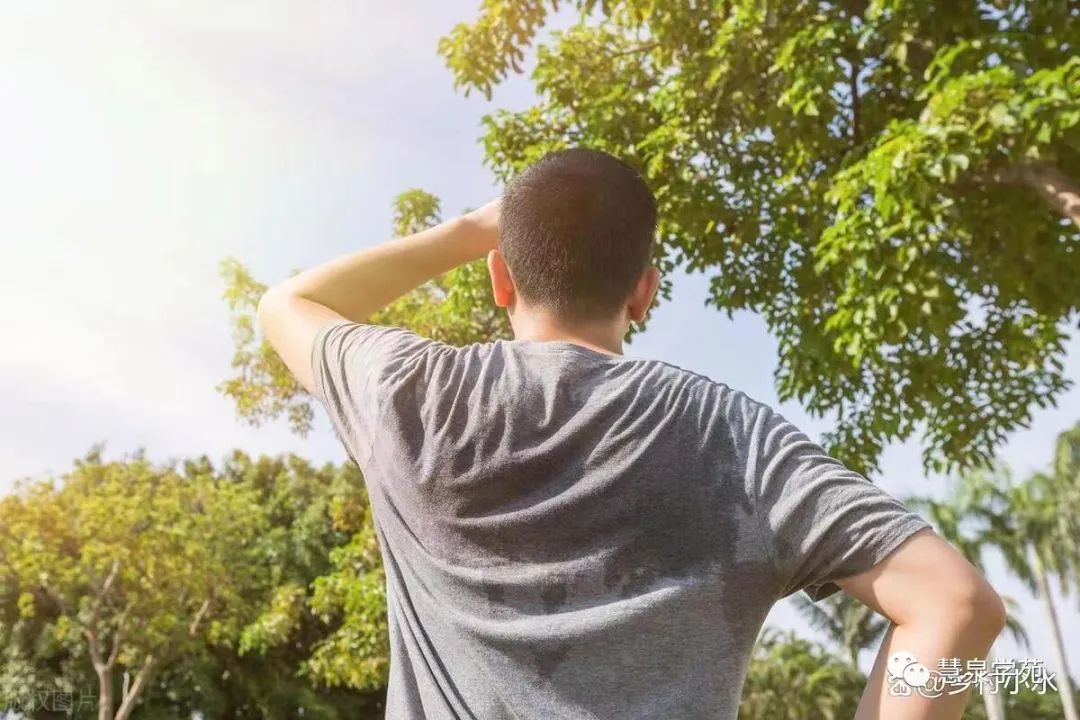
Sweat pores are the entry and exit points for body fluids and are the most numerous openings in our body, referred to as “ghost gates,” “mysterious chambers,” and “sweat voids.” Do not underestimate this small “ghost gate”; it plays an important role in regulating the body’s internal environment.
For example, in cases of colds, we usually classify them as with or without sweating, and the treatment methods differ significantly. If one is affected by wind-cold with severe chills and no sweating, we typically use warm, pungent exterior-releasing herbs, commonly ginger soup, ginger scallion tea, Huo Xiang Zheng Qi Pills, and Wushi Tea, or use Chuan Xiong Tea to disperse. If sweating occurs after taking the medicine, the illness resolves.
In cases of colds with severe fever and mild chills, sweating usually occurs, and we typically use cool, pungent exterior-releasing herbs, such as Yin Qiao San, Sang Ju Yin, and Ban Lan Gen granules.
Some people indiscriminately use Ban Lan Gen granules for colds, even using them for prevention without illness. However, if it is a wind-cold cold, the medicine is actually counterproductive. Prolonged use of cold and cool agents without illness is harmful rather than beneficial.
People should sweat regularly to expel excess moisture, heat, and waste. Especially in summer, one should not stay in air-conditioned rooms for long but should sweat moderately. This is also called “the correspondence between heaven and man.”
Unblocking the “Meridians”
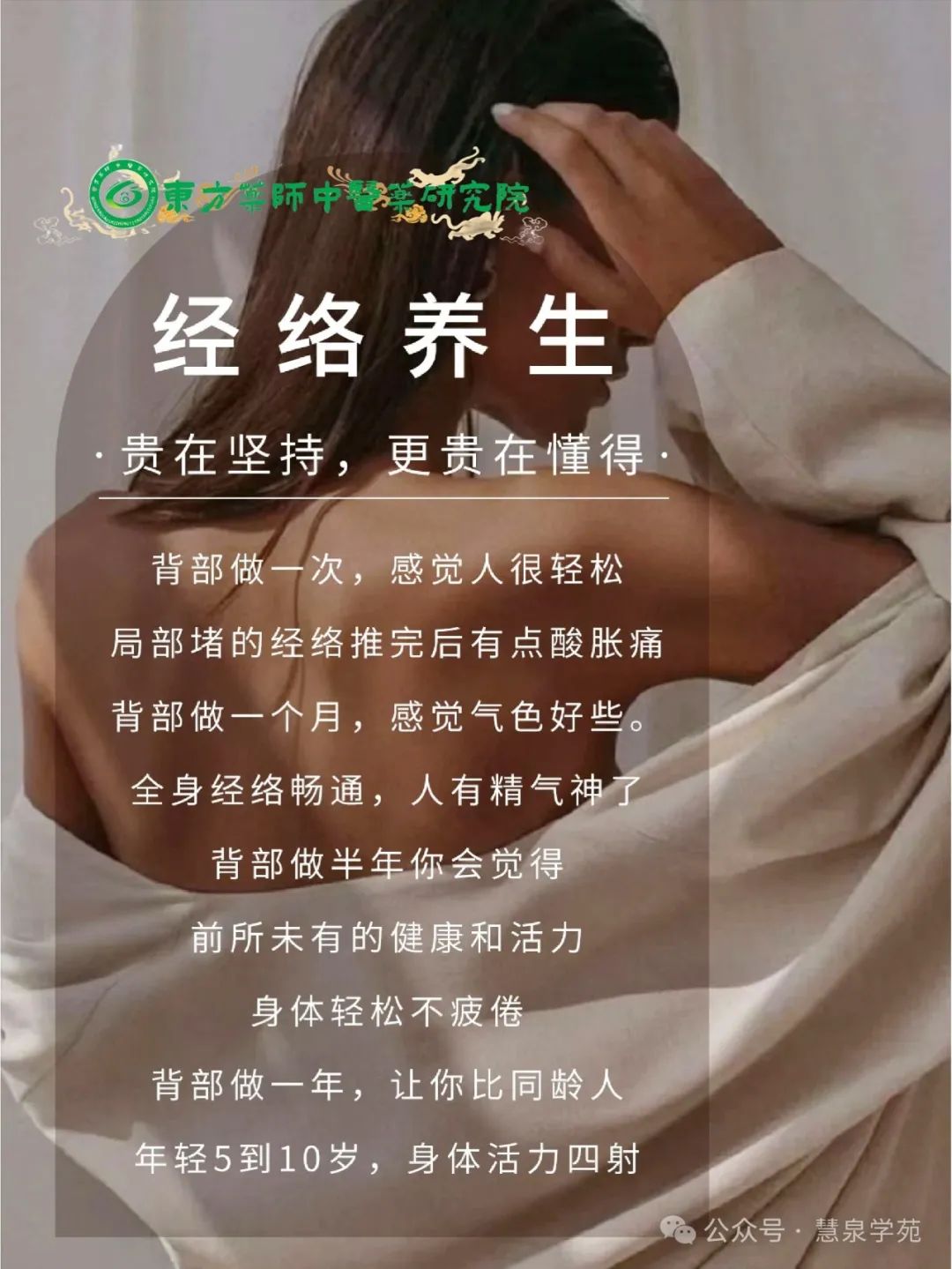
TCM believes that not only is there visible blood flowing in the vessels, but there is also an invisible energy, known as Qi, that accumulates and flows within the body. This flow follows specific patterns, rhythms, directions, and times.
The pathways of this energy flow are called “meridians,” with the main roads referred to as “jing” and the smaller paths as “luo.”
If the meridians are blocked or the collaterals are obstructed, the flow of Qi and blood will stagnate, leading to mild pain or severe paralysis, and over time, potentially resulting in tumors. We have a doctor specializing in acupuncture who has created a set of meridian fitness exercises, using a small wooden hammer to tap all over the body’s meridians starting from the Baihui point on the head, stimulating the meridians to promote smooth flow, achieving excellent fitness results.
Of course, soaking feet in hot water before bed, massaging the Yongquan point, or performing some tuina or guasha can also help with unblocking. It is important to note that Qi must be sufficient to promote blood flow; thus, ensuring balanced and comprehensive nutrition is essential.
Copyright Notice: We emphasize sharing; the images and text are sourced from the internet, and copyright belongs to the original authors. If there is any infringement, please inform us, and we will promptly delete and apologize.
Click the text below to learn more exciting content:
The World's Most Peculiar Education - Traditional Chinese Medicine
Promoting TCM Culture for the Health of the People - Intangible Cultural Heritage - Baicao Tongjing Huoluo
Intangible Heritage Baicao Tongluo and Massage, Moxibustion, Cupping - What are the advantages compared to each other?
Inheriting TCM Adjustment Therapy - Nine Methods of Cervical Vertebra Adjustment
